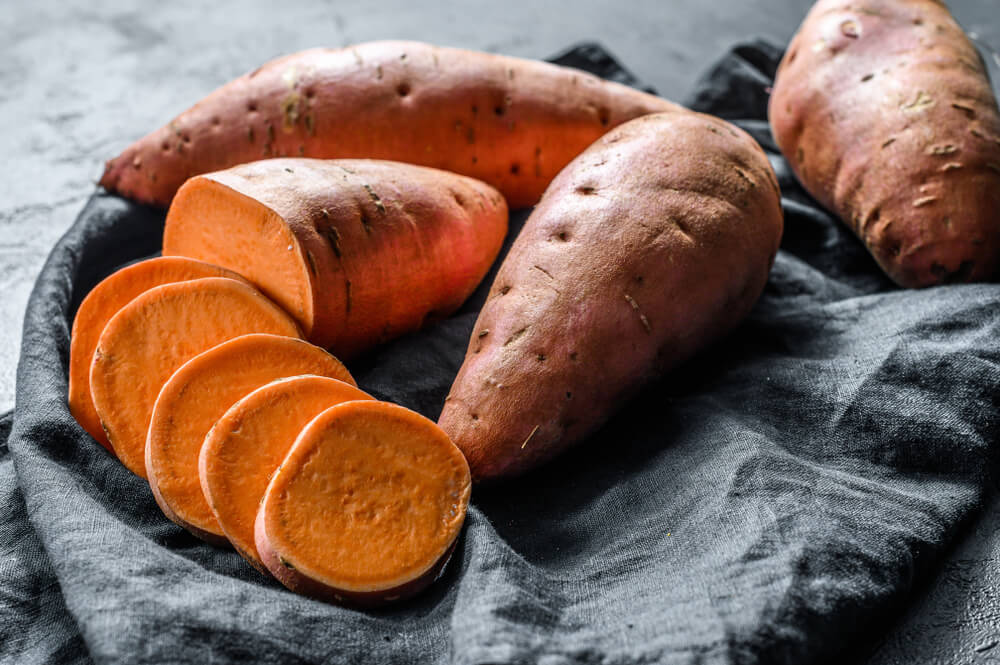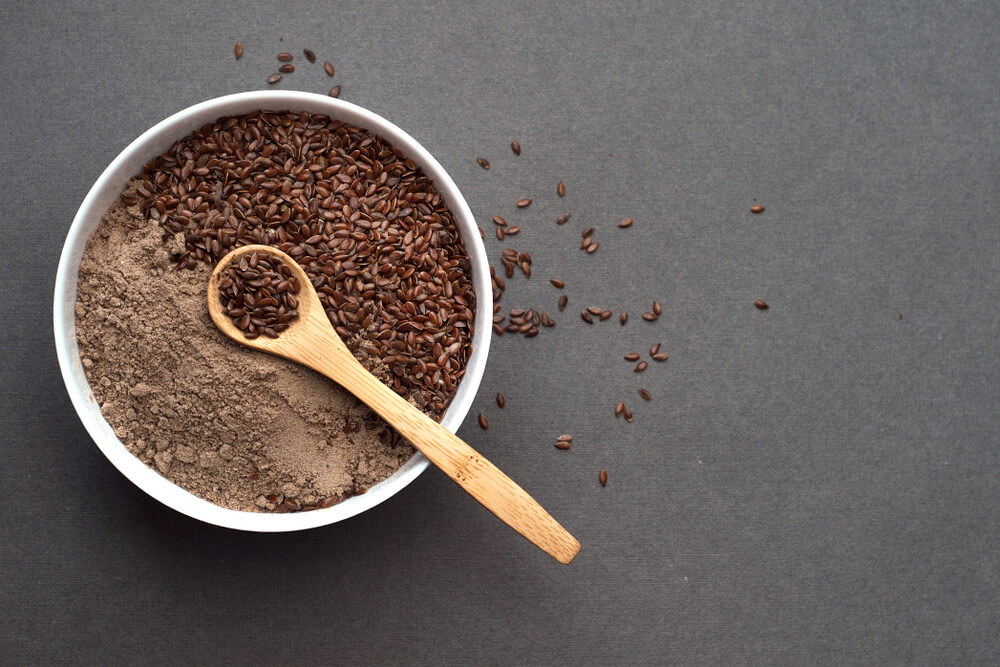Hey Ollie blog readers! We’re offering you an exclusive 60% OFF your starter box! Try now!
Sweet potatoes are a favorite in many kitchens, but can dogs eat sweet potatoes safely? The answer is yes—when they’re cooked plain and served in the right portions. Sweet potatoes are rich in fiber, vitamins, and antioxidants, making them a nutrient-packed treat that supports digestive health and immunity. Whether you’re baking homemade dog treats or looking for a healthy topper to mix into your dog’s bowl, sweet potatoes can be a great choice. In this article, we’ll break down the benefits, risks, and best ways to serve sweet potatoes to your pup.
Can Dogs Eat Sweet Potatoes?
Yes, dogs can eat sweet potatoes—and in many cases, they absolutely should. When cooked properly and served plain, sweet potatoes are a safe, nutritious food for most dogs. They’re packed with dietary fiber, natural antioxidants, and important vitamins like A, C, and several B-complex nutrients. These root vegetables are commonly found in commercial dog food and vet-recommended home-cooked diets alike.
But while sweet potatoes are generally safe, not all forms are created equal. Raw sweet potatoes can be difficult to digest, and processed versions with added sugar, spices, or fat are a no-go. The key is simple, cooked preparation and portion control.
According to the American Kennel Club (AKC), when cooked and served in moderation, sweet potatoes can be a healthy addition to your dog’s diet.
Why Sweet Potatoes Are Safe (and Sometimes Better Than White Potatoes)
Sweet potatoes contain no solanine, the naturally occurring toxin found in raw white potatoes. That makes them inherently safer. In fact, many dog food manufacturers prefer sweet potatoes because they offer more fiber and beta-carotene than traditional white spuds.
Unlike sugary or salty snacks, sweet potatoes provide slow-burning energy and are unlikely to spike your dog’s blood sugar when fed in moderation.
Are Sweet Potatoes Good for Dogs?
Yes, sweet potatoes are good for dogs—when cooked and served correctly, they offer a variety of health benefits that support digestion, immune health, and energy levels. Naturally low in fat and rich in fiber, sweet potatoes are a popular ingredient in many fresh and commercial dog foods, including Ollie’s recipes.
They’re especially helpful for dogs with sensitive stomachs or those needing a gentle, easily digestible carbohydrate source.
As Dr. Gary Richter, MS, DVM, explains, sweet potatoes are a great source of dietary fiber, vitamin C, as well as vitamin B6.
Key Nutrients in Sweet Potatoes That Support Canine Health
Sweet potatoes pack a serious nutritional punch. Here’s what makes them a valuable addition to your dog’s diet:
- Dietary Fiber: Supports healthy digestion and regular bowel movements; may help dogs with loose stools or mild constipation.
- Beta-Carotene (a precursor to Vitamin A): Promotes vision health, immune function, and healthy skin and coat.
- Vitamin C: Acts as an antioxidant, protecting cells from free radicals and supporting joint health.
- Vitamin B6: Essential for enzyme function and nervous system support.
- Manganese & Potassium: Support bone health, metabolism, and fluid balance.
Combined, these nutrients make sweet potatoes a wholesome, plant-based complement to animal proteins in your dog’s meals.

Health benefits of sweet potatoes for dogs
Sweet potatoes aren’t just a trendy ingredient—they offer real health benefits for dogs. That’s why we include them in many of Ollie’s fresh food recipes. As a whole-food source of carbohydrates, sweet potatoes provide long-lasting energy without the need for grains or fillers. They’re also packed with natural fiber and key nutrients that support your dog’s overall well-being.
According to PetMD, sweet potatoes are rich in dietary fiber and contain an array of vitamins and minerals that can support your dog’s digestive and immune health.
Here’s a closer look at what sweet potatoes bring to the bowl:
1. Rich in Dietary Fiber
Sweet potatoes are naturally high in fiber, which promotes healthy digestion and can help regulate your dog’s bowel movements. Fiber also helps dogs feel full, which can support healthy weight management.
2. Loaded with Vitamins and Antioxidants
Sweet potatoes contain:
- Vitamin A (beta-carotene): Essential for vision, immune health, and skin repair
- Vitamin C: Supports immune system strength and cellular health
- Vitamin B6: Aids in metabolism and nervous system function
These antioxidants also help protect your dog’s cells from oxidative stress, which is especially helpful for aging pups.
3. Packed with Minerals
Sweet potatoes supply important minerals like:
- Calcium and Potassium: Support bone strength and proper muscle function
- Iron: Helps transport oxygen through the blood
- Magnesium and Manganese: Regulate metabolism and enzyme activity
A Note on Glycemic Load
While sweet potatoes are low in fat and nutrient-dense, they are higher on the glycemic index. That means they can cause a spike in blood sugar—so they may not be the best fit for:
- Dogs with diabetes
- Dogs with obesity or weight management challenges
- Dogs on prescription low-carb diets
Always consult your vet before introducing sweet potatoes if your dog has a specific medical condition.
Sweet potatoes are more than just a tasty treat—they’re a fiber-rich, vitamin-loaded veggie that supports digestive health, immunity, and energy. As long as they’re served plain and in moderation, they can be a smart addition to your dog’s diet.
See why sweet potatoes are a favorite in Ollie’s fresh dog food meals
Ways to cook sweet potato for your dog
Since you should never feed your dog raw sweet potatoes, here are some different cooking methods you can use when preparing sweet potatoes for your pup. Even if you cook the potato with the skin on it, you should remove the skin before sharing it with your dog.
Roasted – To roast sweet potato, you can poke holes in it and place it in a 400-degree oven until it is soft all the way through (about 40 – 60 minutes for a medium or large sweet potato)
Grilled – you can cut your sweet potato into wedges and grill (or even bake) them into a tasty treat.
Dehydrated – If you have a dog who loves to chew, cut your sweet potato into quarter inch slices and place in a food dehydrator or in the oven on a cookie sheet at 250 degrees for about 3 hours.
Steamed – While probably not the most efficient method on the list, you can cut your sweet potatoes and place in a steamer basket until they’re fork tender.
Boiled – Place the chopped sweet potato into boiling water and let it cook until the potatoes are fork tender. Drain and let cool. Or, you can make a mash for your pup, just don’t add any butter or salt. A little cinnamon is okay if your pup isn’t on a bland diet.
Baked in a treat – Once you’ve cooked your sweet potatoes, you can get a little creative and add them to a dog safe recipe like this biscuit recipe.
How to serve sweet potato to your dog
1. In your dog’s Kong or enrichment toy
Once you’ve cooked the sweet potato, you can mash or cut it and add it to your pup’s Kong or favorite enrichment toy. They’ll enjoy spending time digging out the delicious treat.
2. Over a bowl of kibble or fresh food
For an extra boost of carbohydrates you can add some sweet potato to your dog’s meals. This might not be suitable for dogs who are diabetic or overweight so chat with your vet first if you plan to do this regularly.
3. Whipped or mashed as part of a holiday meal
Humans aren’t the only ones who like to indulge at the holidays. If you are making a sweet potato dish for a holiday gathering, save some of the plain, cooked sweet potato for your pup to enjoy along with you.
4. With eggs at breakfast
If you’re making a sunday brunch consider allowing your dog to join with their own eggs (any style they like) and some sweet potato
5. With plain chicken or ground beef as part of a bland diet
If your dog has an upset stomach and doesn’t enjoy rice, you can use sweet potato as a source of carbohydrate when offering a bland diet. Use the general guideline of 2 parts starch/carbohydrate to one part lean chicken or ground beef.
If all of this sounds like a lot of work, don’t worry, you can order some of our beef recipe straight to your door. A few hours of thaw time and your dog will have a complete and balanced meal, with some sweet potato mixed in no cooking required.
The Ollie blog is devoted to helping pet parents lead healthier lives with their pups. If you want to learn more about our fresh, human-grade food, check out MyOllie.com.
Tagged As:

The nutrition your dog needs,
the food they want.

Enjoying our articles? Subscribe our Newsletters and get new articles directly to your inbox
You might also like
18 September 2025
6 MINS READ
Can Dogs Eat Flaxseed? Is Flaxseed Safe For Dogs?
Wondering if flaxseed is safe for your dog? This guide breaks down the benefits, risks, and best ways to add flaxseed, or flaxseed oil, to your pup’s diet.
18 September 2025
6 MINS READ
Why is My Dog Not Eating But Acting Normal? Causes & What To Do
Worried your dog isn’t eating but still acting normal? Here’s what could be going on and what to do to help your pup get their appetite back.
18 September 2025
5 MINS READ
Can Dogs Eat Crab? Is Crab Meat Safe For Dogs?
Thinking about giving your dog crab meat? Find out if it’s safe, what risks to watch for, and when crab might do more harm than good.







